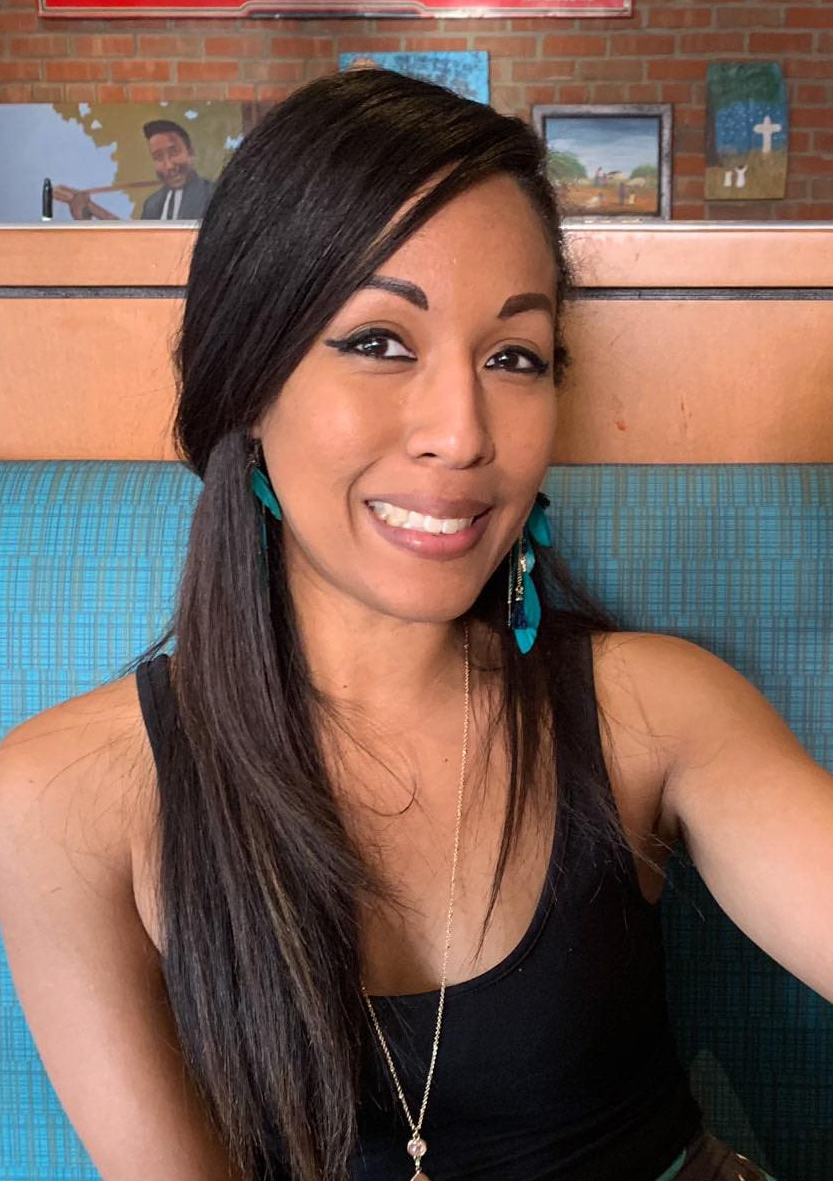1. Why are you volunteering at Breaking Taboo?
I am volunteering at Breaking Taboo because I am extremely passionate about the cause of mental health and working towards ending the suicide epidemic currently facing this country. I myself live with Bipolar 1 Disorder. I had my first mental breakdown when I was 16 and was committed to a psychiatric hospital at age 17. I know how hard it is to live life when you are afflicted with such a condition as Bipolar 1 Disorder. I simply want to spread the message that there is hope for everyone who is struggling with some sort of mental ailment and that there is happiness in the days ahead. No matter how many relapses I have or how many breakdowns I endure, I will keep fighting. This disease can be aggressive, but I believe I am stronger, and it will not keep me down. I wish for others to feel this way as well in their own journey to recovery.
2. Why is breaking taboo important?
Breaking Taboo is important because it is creating awareness about mental health and is helping to break the stigma surrounding mental illnesses. You can never have too many organizations fighting for the same cause. Most specifically, Breaking Taboo aims to end the vicious cycle of suicide and to educate people about suicide prevention. Over the past decade, the number of suicides nationwide has only increased. We, as a nation, need to find a way to end this cycle. Breaking Taboo, I feel, can be extremely instrumental in that process.
3. What is your favorite thing about volunteering?
My favorite thing would have to be knowing I am helping another person or group of persons out there, and knowing I am part of a greater cause. As an individual, you can only do so much and reach so many people, but when you combine your efforts with like-minded people, it can start a real movement.
4. What is her background in mental health?
My background in mental health stems from almost 19 years of lived experience of having a mental illness. I don’t believe there is a greater way of understanding a mental health condition than having actually lived it. Also, since 2017, I have worked as a volunteer for NAMI (National Alliance on Mental Illness), acting as a public speaker, visiting college and high school campuses, as well as psychiatric wards and speaking to young adults about mental health as well as my own personal struggles with it. I am currently pursuing my M.A. in Clinical Psychology at Pepperdine University, and am learning a great deal about mental health in general.
5. Why is she a mental health advocate?
I am a mental health advocate because I feel mental illness is something many people go through but don’t understand. They feel alienated and alone in their struggles. If I could help only one person today by being a mental health advocate, it would all be worth it. As I said before, I wish for all people struggling with a mental illness to know, they can lead happy, full lives. Recovery is possible and we mustn’t give up hope.
6. How do we go about nationalizing mental health education in schools?
I feel we would have to lobby people in congress or a member of city council to put the ball in motion. Perhaps we could even start a petition, or write letters to congress, requesting mental health education become integrated into school curriculum. Both New York and Virginia last July established laws doing just that. They brought mental health education into their school districts and into their classrooms. Finding ways to get the cause of mental health recognized and emphasize the urgency in educating our youth about illnesses that affect millions of Americans and hundreds of millions of people worldwide is key. Illnesses like depression that take the lives of too many people. If we can get the government to listen and to empathize, maybe we have a chance. Presently, mental health education is not a priority of the U.S. government and there is something profoundly wrong with that.
7. What do you do on a daily basis to take care of your mental health and how can others learn from you?
I try to be very mindful of my thoughts, making sure to stop myself when my mind starts going to negative places and reinforcing positive thoughts. I’m always reminding myself to take deep breaths when I start to feel stressed or do positive affirmations. I try my best to eat healthy and take care of my health because my physical health does impact my mental health. I think what others could learn from me in regards to taking care of mental health is to try to refrain from doing things you know will harm your well-being or affect your self-esteem. Avoid situations that might cause you a lot of distress. It is okay to miss a party or dinner with friends if you aren’t feeling up to it. Listen to your body and your needs. It is OK to put yourself first if it means giving you peace of mind.
8. of mind. How can people get involved in destigmatizing mental health?
People can be more mindful of words they use in everyday dialogue. Avoid using stigmatizing words such as “bipolar” or “crazy”. Recognizing people living with a mental health condition are people first. They live with the condition, but it doesn’t define them. Refrain from criminalizing mental illnesses and those that live with them. But most of all, becoming more educated about the mental illnesses that exist and be more empathetic towards those that live with it. The more you learn, the more understanding you will become, and empathy is evolved out of that understanding. Empathy is the key and a main step on the road to finding a solution to ending the mental health crisis.
9. How did you become aware you have bipolar disorder?
I was 15 when my dad passed. A year and a half later, September 11th happened, and for reasons beyond my comprehension, it triggered a trauma inside of me that I didn’t even realize existed. I became heavily depressed, on edge, and paranoid. My mom pulled me out of school. I saw a psychiatrist who had diagnosed me with Generalized Anxiety Disorder. When I returned to school, I had become someone else entirely. I was bold and brazen and did things completely out of character for me. I used to be a 4.5 GPA student but when I returned, I was pulling D’s and F’s. I barely graduated high school. That summer things only got worse, and right before I was supposed to start college at UCI, I was committed to a psychiatric hospital instead where they diagnosed me with Bipolar 1 Disorder, however, it wasn’t until about six months to a year later that it really sunk in that I had this monster of a disease.
10. What are things you struggle with because of this disorder?
The medication I take for my disorder helps stabilize my moods, controls my anxiety, and keeps me from hearing voices. My medication is however only one factor of a number of factors that keeps me on the road to recovery. (Other factors would be: strong support system from my mom, boyfriend, other family and friends, seeing my psychiatrist, etc.) Being off my medication in the past has proven highly consequential. I would hear voices again as I did during my first breakdown in high school, become delusional, and have extreme levels of anxiety. My mood might waver from highly euphoric to devastatingly depressed. My last breakdown, I couldn’t get out of bed for five months straight. Every time I tried to leave the house, I felt my anxiety shove me back in. I couldn’t tell delusion from reality. I trusted no one, except for my boyfriend and I thought everyone was conspiring against me. When I experience anxiety, it often surges up inside of me and I am unable to repress it. My brain feels like it’s on fire and I am suffocating. My mind runs a mile a minute and I start to feel like I’m drowning and will sink into the floor. I can’t control my thoughts. I begin to panic and more anxiety grows only causing the current anxiety to increase tenfold. The worst part about my illness is that I never really know when it will strike again. I might notice some signs, but it is unrelenting and brutal. Before I had my second breakdown, I never thought it could happen again, but it did. It caught me completely off guard. You can be as mindful and careful as you like, but sometimes, it trips you up.






